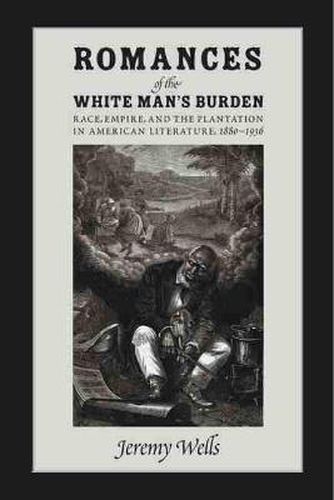Readings Newsletter
Become a Readings Member to make your shopping experience even easier.
Sign in or sign up for free!
You’re not far away from qualifying for FREE standard shipping within Australia
You’ve qualified for FREE standard shipping within Australia
The cart is loading…






Take up the white man’s burden! So wrote the English writer Rudyard Kipling in 1899, in a poem aimed at Americans at a time when colonial ambitions were particularly high. The poem proved especially popular among white southern men, who saw in its vision of America’s imperial future an image that appeared to reflect and even redeem the South’s plantation past. Romances of the White Man’s Burden takes on works in American literature in which the proverbial old plantation is made to seem not a relic but a harbinger, a sign that the South had arrived at a multiracial modernity and harmony before the rest of the United States. Focusing on writers such as Joel Chandler Harris, Thomas Nelson Page, Henry W. Grady, Thomas Dixon, and William Faulkner, Jeremy Wells reveals their shared fixation on the figure of the white southern man as specially burdened by history. Each of these writers, in his own way, presented the plantation South as an emblem, not an aberration, of America.
$9.00 standard shipping within Australia
FREE standard shipping within Australia for orders over $100.00
Express & International shipping calculated at checkout
Take up the white man’s burden! So wrote the English writer Rudyard Kipling in 1899, in a poem aimed at Americans at a time when colonial ambitions were particularly high. The poem proved especially popular among white southern men, who saw in its vision of America’s imperial future an image that appeared to reflect and even redeem the South’s plantation past. Romances of the White Man’s Burden takes on works in American literature in which the proverbial old plantation is made to seem not a relic but a harbinger, a sign that the South had arrived at a multiracial modernity and harmony before the rest of the United States. Focusing on writers such as Joel Chandler Harris, Thomas Nelson Page, Henry W. Grady, Thomas Dixon, and William Faulkner, Jeremy Wells reveals their shared fixation on the figure of the white southern man as specially burdened by history. Each of these writers, in his own way, presented the plantation South as an emblem, not an aberration, of America.